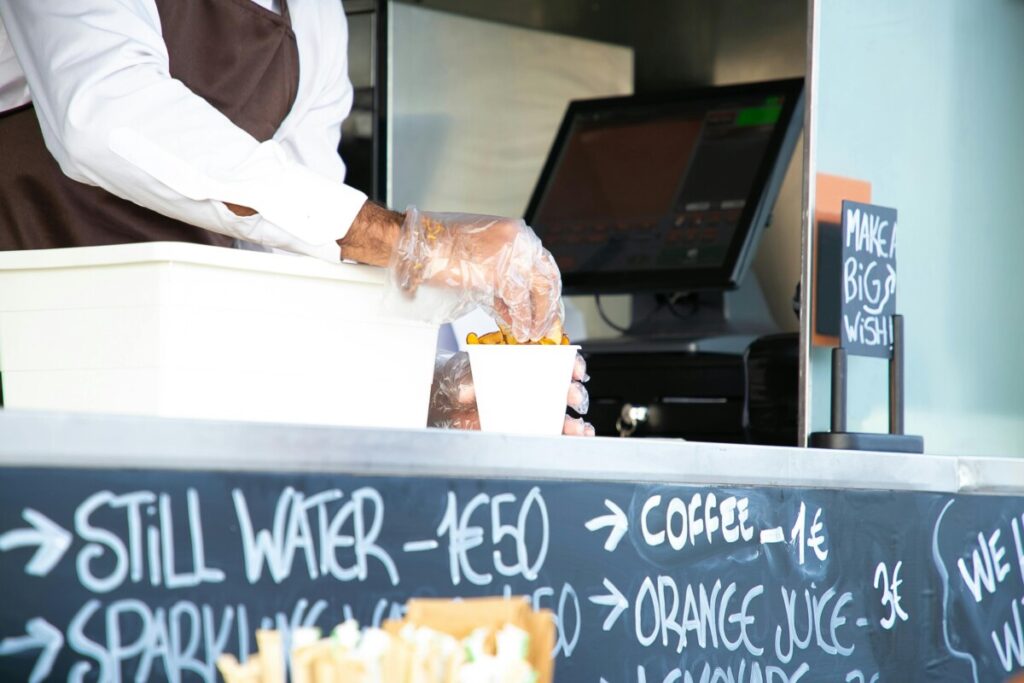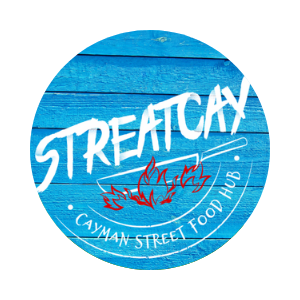Whether you’re a chef looking to take your talents to the streets or an aspiring food entrepreneur with a unique concept, this guide will help you to obtain your Mobile Food Trader License in the Cayman Islands, from understanding the legal framework to navigating the application process and ensuring compliance with health and safety standards.

A Legal Requirement: Operating a mobile food business in Cayman without the required permits is not only risky but illegal. The license will ensure that yo operate within the bounds of the law, protecting you from fines, penalties, and potential shutdowns.
Ensuring Food Safety: Your license signifies that you’ve met specific health and safety standards, which are in place to protect both your customers and your business. It demonstrates your commitment to providing safe and hygienic food to your patrons.
Consumer Trust and Professionalism: When costumers see your license displayed in your mobile kitchen, they know that your business complies with the necessary regulations. This trust can lead to repeat business and positive word-of-mouth recommendations. It’s also important when seeking partnerships or collaborations within the food industry, attracting event organizers, and earning the respect of fellow vendors.
Access to Prime Locations: Many prime and lucrative locations in the Cayman Islands, such as tourist hotspots, beachfronts, and local festivals, require vendors to hold a valid license.
Now that we’ve established why obtaining this document is paramount, let’s move forward with the step-by-step guide that will lead you through the process of obtaining your Mobile Food Trader License.
A business in the Cayman Islands must be locally owned and controlled. In the case of a Sole Trader, the owner must be Caymanian. In the case of a Company, the shareholders must own at least 60% of the voting shares and 60% of the directors must be Caymanian. Find out more.
Make sure to do a search of existing business names, otherwise, your application will be deferred if it uses a name currently used by an existing license. You can search here for Business names already owned by a Sole Trader. You can seach here here. for Business names owned by Companies.
All companies must be registered with the Registrar of Companies. For those that are incorporated outside of the Cayman Islands, that wish to conduct business locally can register as a “Foreign Company” but may also require a Local Companies Control License.
The Cayman Islands have specific regulations regarding where you can park your food truck or set up your street food stall. It’s essential to research and identify permissible locations, taking into account factors such as zoning laws and proximity to other businesses or residential areas. If you wish to operate on Public Land & Beaches, you will be required to seek permission from the Public Lands Commission Department along with your license application. Rules are different if you want to trade on Private Land or at a Private Event. In both cases, you would need to contact property management/owner or event organizer.
Licensing authorities will require specific documents as part of your application. These will include identification, proof of company ownership, health permits, and more. See the Checklist.
Submit your online application, along with all required documents, at the Department of Commerce & Investment. and keep a record of your submission, including any receipts or confirmation of application receipt. Be prepared to follow up with the authority to track the progress of your application and address any questions or additional requirements promptly.
Mobile food businesses need documentation and inspection from the Cayman Department of Health (DEH). An inspector will visit your food unit to assess its cleanliness, food handling practices, and overall compliance with health and safety regulations. This inspection ensures that you are maintaining a safe and hygienic environment for food preparation and service. He will also review your documentation to ensure that you have met all the necessary regulatory requirements as well as verifying the accuracy and completeness of your license application.
Preparation Is Key: Prior to the inspection, ensure that your kitchen, equipment, and food storage areas are impeccably clean and organized. Handwashing facilities should be readily available. Take precautions to prevent cross-contamination and clearly label menu items containing allergens. Ensure that food will be stored and served at the correct temperatures to prevent food borne illnesses. Review your documentation to confirm its accuracy and completeness.
Be Transparent: During the inspection, be transparent and cooperative with the inspector. Answer any questions and provide requested information promptly. Demonstrating your commitment to compliance and safety is essential.
Correct Any Issues: If the inspector identifies any areas of concern or non-compliance, take immediate action to correct these issues.
After successfully navigating the inspection and approval process, you’re on the brink of getting your License. You will typically receive it by mail or through an official certificate. Ensure that you retain a copy of it in a safe and easily accessible location, as you may need to display it prominently at your mobile food operation.
It’s important to remember that obtaining your License is just the beginning. To ensure the continued success of your business, you must fulfill ongoing responsibilities, which include:
Renewal: Your license will have an expiration date, and renewal will be necessary to continue operating legally. Be aware of the renewal requirements and deadlines.
Compliance: Continue to adhere to health and safety regulations, zoning laws, and any other requirements outlined in your license. Regularly review and update your procedures to maintain compliance.
Financial Management: Keep track of the financial aspects of your business, including ongoing license fees and expenses. Proper financial management is key to long-term success.
Expansion and Growth: As your mobile food business thrives, you may consider opportunities for expansion, such as adding new menu items, exploring additional locations, or participating in local events and festivals.
Cayman Islands will charges Application Fees for your Mobile Food Trader License. The exact amount can vary, so it’s essential to check with the Department of Commerce & Investment for the current fee structure. Be prepared to cover this cost when submitting your application.
In addition to the initial application fee, you should budget for Ongoing License Costs. Mobile food trader licenses are often subject to annual or periodic renewal fees.
On this website we use first or third-party tools that store small files (cookie) on your device. Cookies are normally used to allow the site to run properly (technical cookies), to generate navigation usage reports (statistics cookies) and to suitable advertise our services/products (profiling cookies). We can directly use technical cookies, but you have the right to choose whether or not to enable statistical and profiling cookies. Enabling these cookies, you help us to offer you a better experience.
